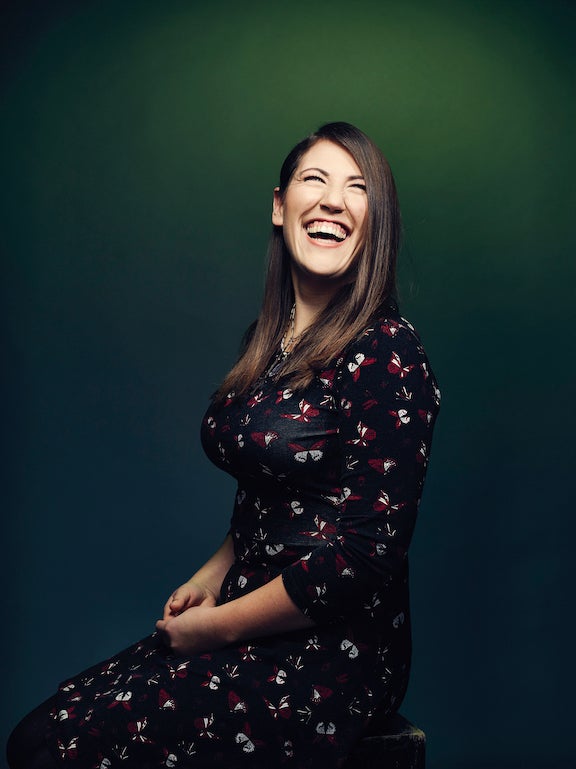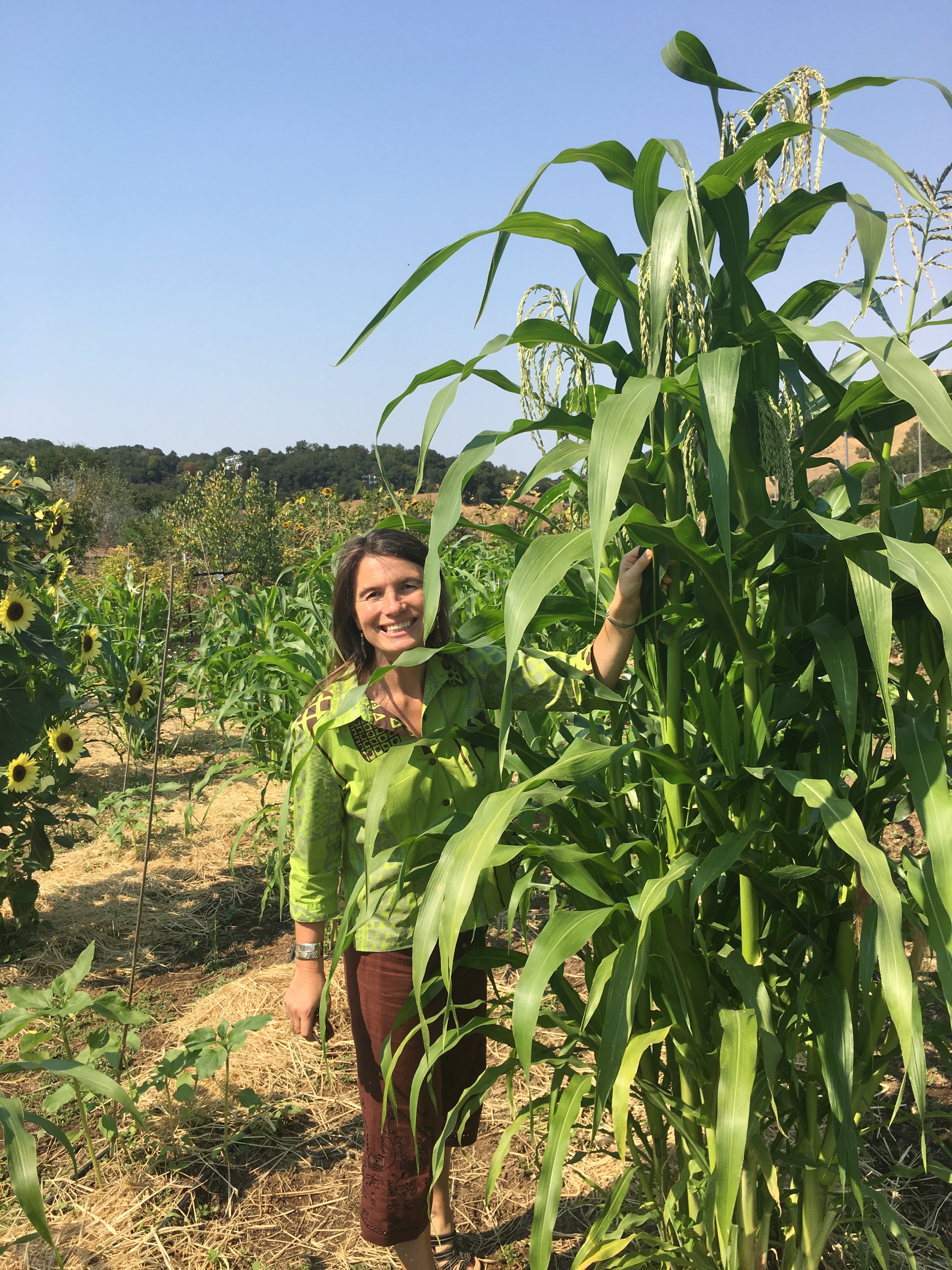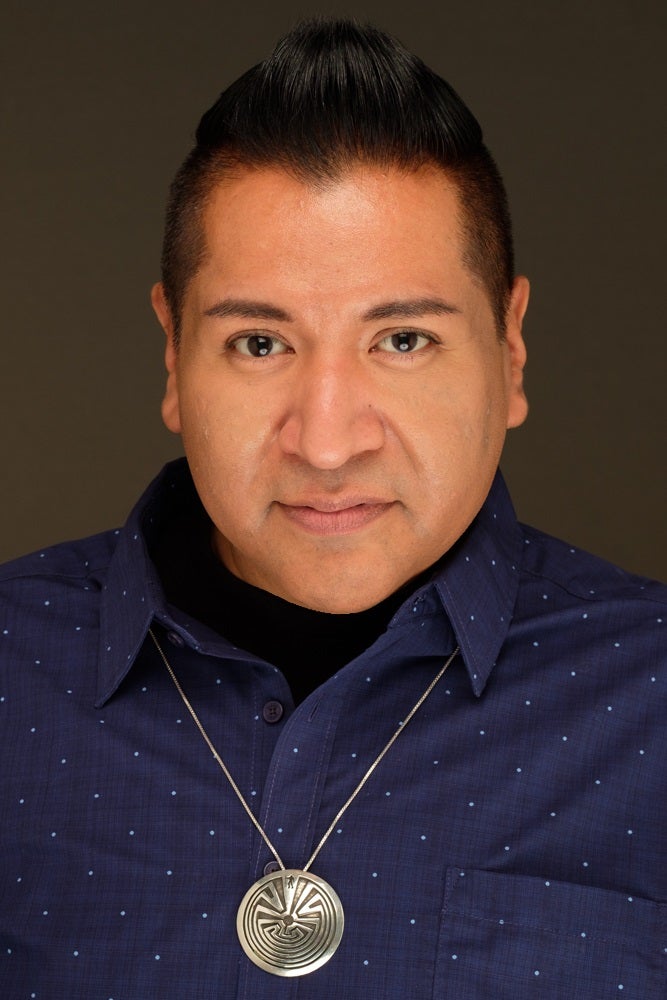Editor’s note: This story is featured in the 2022 year in review.
In May 2020, Arizona State University reached a major milestone when it enrolled approximately 3,500 American Indian students. That same year, it graduated 679 Indigenous students, another breakthrough achievement.
This year, the university reached another plateau: ASU now employs approximately 60 Indigenous scholars — the biggest cohort ever assembled.
These world-class scholars have won Pulitzers, fellowships, MacArthur “genius” and National Institutes of Health (NIH) grants, and have either been inducted into major academies or had significant awards bestowed upon them. They teach subjects that cover a wide spectrum of academia, including sustainability, education, dramatic arts, science, law and health care.
“In 2014, we started to really take seriously that we needed to create the conditions for Indigenous faculty to thrive at ASU,” said Bryan McKinley Jones Brayboy, President’s Professor, director of the Center for Indian Education and ASU’s senior adviser to the president on American Indian affairs. “We created a plan, worked with senior administration, deans and directors, and our faculty colleagues to attract both tenured and untenured Native faculty. We moved from a model of serendipity – hoping a faculty member would apply – to intentionality, where we built a plan and structure. The migration from serendipity to intentionality has made all the difference.”
Due in large part to President Michael Crow’s goal of making higher education accessible to all, ASU arguably has more Indigenous students and faculty than any major research university in the nation. More importantly, ASU Indigenous faculty are encouraged to bring their Indigenous lifeways and ways of knowing to the academy. While this may not seem significant to some, being able to place Indigenous knowledge in the academy as an equal partner to Western science is both empowering to Indigenous communities and beneficial to all communities.
There was a sense at ASU that if the institution would build the structure, faculty would come. And come they did, across disciplines and fields. Additionally, the faculty are excited about the number of bright Indigenous students, that they have a university president who understands prime issues that impact Indigenous peoples and communities, and to be surrounded by other Indigenous faculty.
And there’s more to come, Brayboy promises.
“We can’t be satisfied with where we are. There are so many bright Native faculty and doctoral students,” said Brayboy, who was named ASU vice president for social advancement in 2021. “Our students — all of our students — deserve to have access to great minds, great teachers and amazing human beings. That is who we’ve recruited and it is who we will continue to recruit.”
Here’s a portrait of three Native American scholars at ASU:
Madeline Sayet (Mohegan Tribe)
Madeline Sayet
As a Native American artist plying her trade, Madeline Sayet was living the dream.
She traveled the country hosting workshops, directing productions and writing plays as a professional theater artist, and taught the next generation of students as executive director of the prestigious Yale Indigenous Performing Arts Program. She hung around many creatives and academics and was putting art out into the world.
Then she received an email from Ayanna Thompson, a Regents Professor of English at Arizona State University and director of the Arizona Center for Medieval and Renaissance Studies. She wanted Sayet to come and teach full time at ASU.
“It was hard to say no because it was such a cool group of people,” said Sayet, who already has dozens of productions to her credit and has had her work featured in National Geographic, Mental Floss and Good Magazine. “I’ve never been at a university that has had more than five Native American professors, let alone more than 60 scholars and thousands of Indigenous students. There’s something happening here at ASU that’s so special.”
Sayet will be teaching contemporary Native American dramaENG 350 Studies in Literary Histories and Traditions: Native American Drama in spring 2023 and will be bringing a wealth of theater knowledge, thanks to the contributions of many who came before her.
“Native people have been telling stories in a multiplicity of ways for thousands of years,” said Sayet, who said she was raised on traditional Mohegan stories and Shakespeare. “The theater is a place where you can take all of those different ways of telling a story and bring them together.”
Sayet is a director whose work is shaped by the idea of "story medicine" — the belief that every story we put into this world has the power to do real-world harm or healing. She has been named a Forbes 30 Under 30 in Hollywood & Entertainment, a TED Fellow, an MIT Media Lab Directors Fellow, NCAIED Native American 40 Under 40, National Directing Fellow and a recipient of The White House Champion of Change Award from President Barack Obama.
She says there’s an irony in teaching in academia because it’s an institution that has bolstered colonialism for centuries. Yet, she believes those barriers are starting to be removed.
“When I was in my final year as an undergraduate at New York University’s Tisch School of the Arts, I was really lucky because there was a Native theater course being taught at that time. Until then, I didn’t know that there was Native theater,” Sayet said. “I never knew we had our own canon of literature or that there were Native American playwrights. My life completely changed from that moment on.”
Now Sayet hopes to change the lives of others.
“Having a mentor relationship with Native students and being an example as an artist or professor means that many of them will be able to say to themselves, ‘She is doing it, so this is also something I can do.’ And we really need each of their voices,” Sayet said. “There are so many stories waiting to be told that can only come from these students. I learn so much from the students I work with.”
Sayet said the local arts and university community has contacted her in hopes of potential future interdisciplinary collaborations.
“Some folks from musical theater and opera have already reached out to me,” Sayet said. “I’d love to engage with them to create some cool, interesting projects while I’m here. I’m very excited to be teaching at ASU.”
Melissa K. Nelson (Turtle Mountain Band of Chippewa Indians)
Melissa K. Nelson
For years, scientists have discounted what Native Americans have espoused about conservation, ecology and environmental justice. But with climate change becoming more obvious every day, theirs is beginning to become a respected voice in the field.
One of those voices belongs to Melissa K. Nelson, a professor of Indigenous sustainability in the School of Sustainability and College of Global Futures.
“It’s ironic, isn’t it?” said Nelson, who is an Indigenous ecologist, writer, editor, media-maker and scholar-activist. “The contemporary sustainability field has been largely led by white Americans and Europeans with minimal attention to the sustainable traditions of Indigenous people. It’s a testament to ASU’s leadership that explicitly recognizes Indigenous students on Indigenous lands, that we should have Indigenous faculty teach our different knowledge systems of sustainability.”
Before joining the School of Sustainability, Nelson served as a professor of American Indian studies at San Francisco State University (2002–20), specializing in Indigenous environmental and California Indian studies. While at SFSU, Nelson developed Native science courses with extensive field experience focused on ethnobotany, urban creek restoration and sustainable agriculture.
She has won many substantial awards and fellowships. She was the 2010 Anne Ray Fellow at the School for Advanced Research focused on cultural landscapes and oral traditions. In 2017, she was given an award for environmental stewardship from the Conservation Corp, North Bay, and in 2019 she won an award from the Ecological Farming Association for her social justice work in sustainable agriculture through the Cultural Conservancy, a Native-led organization she has worked with for decades. And just this week, Nelson discovered she received the NDN Collective Changemaker Fellowship, which will allow her to invest in professional development, such advancing her media-making skills, and create an Indigenous land rematriation toolkit.
Additionally, Nelson has been a member of the Native American Indigenous Studies Association and the Ecological Society of America for many years, organizing sessions on Traditional Ecological Knowledge and Food Sovereignty.
She is dedicated to Indigenous rights and regeneration, biocultural heritage and environmental justice, intercultural solidarity, and the renewal and celebration of community health and cultural arts. Her current work focuses on Indigenizing conservation, Native farming, and land and seed rematriation.
“Different tribes have sophisticated, scientific knowledge about how to harvest and farm in the desert; how to selectively harvest trees without destroying the forest; and how to fish sustainably without depleting their populations,” said Nelson, who is particularly passionate about Indigenous food sovereignty. “We’ve been doing it for centuries, but it’s been erased and invisible in the academy and Western science. But now, there’s a generation who can bring Indigenous sciences to the forefront, equal with Western sciences, and help solve our most pressing ecological issues of the day.”
Nelson enjoys teaching and sharing these methods and philosophies with Native American students, who can keep their respective traditions alive for their communities and for the future. She also shares Indigenous food stories and teachings through her podcast, "Native Seed Pod."
“I was able to teach a sustainability graduate class at ASU that included a lot on Indigenous knowledge systems, and out of my class of 30 students, four of them identified as Indigenous,” Nelson said. “It was a small percentage, but it felt great to have their knowledge systems and histories recognized and validated.”
As for the other students in her class, they picked up new knowledge they didn’t have before.
“Many of them commented they had an understanding of sustainability only through Western science, through reductionism and so-called objectivity,” Nelson said. “They also said they discovered a new way of interacting with nature that is much more relational and sustainable, and gained insight into tribal sovereignty. So, I think the world is ready for understanding and recognizing Indigenous peoples' knowledge in a new way.”
Nelson isn’t just teaching these methods — she’s putting it into practice by sharing and learning with other communities. She has worked with Indigenous groups in California, Arizona, North Dakota and Hawaii, assisting with fire management, farming, restoring habitats and land restoration. Her work was documented in the Emmy-nominated “Tending Nature” TV series episode titled “Cultivating Native Foodways with the Cultural Conservancy.” She has also worked with state and national parks and private land trusts to open access to Native peoples.
She is currently writing a research paper on the “conservation through reconciliation” movement in Canada.
“My tribe is a border tribe, between North Dakota and Manitoba, Canada, much like the border tribes here in Arizona. It’s important to recognize that our animal relatives, like the buffalo and moose up north, or the jaguar or desert tortoise in Arizona, do not see borders,” Nelson said. “Up in Canada, First Nations are bringing back the buffalo through a new, international Buffalo Treaty focused on restoration, cooperation and renewal. Many new tribal parks and land areas are being rededicated with Indigenous forms of conservation based on Indigenous practices of kinship and stewardship.”
Nelson believes most Native scholars are community-based and engaged.
“To me, that makes the classroom learning setting so enriching, because it comes from real-world experience,” Nelson said.
Matt Ignacio (Tohono O’odham Nation)
Matt Ignacio
Matt Ignacio is arguably one of the happiest faculty members at Arizona State University. In fact, he’s still pretty giddy after two years on the job.
“I feel like I won the lottery when I came to ASU,” said Ignacio, an assistant professor in the School of Social Work at the Watts College of Public Service and Community Solutions who received his PhD from the University of Washington in 2020. “I’ve been given a lot of autonomy to teach course content in a way that reflects my direct practice experience over the past two decades. It’s a real opportunity to bring in and share those learning lessons from the field.”
Ignacio is a social worker based at ASU’s Tucson location and specializes in the study of diversity and oppression, as well as research focused on addressing the healing and mental wellness needs of Native people and communities.
Among his awards is a Doctoral Minority Fellowship Program Award from the Council on Social Word Education.
He is currently working on an NIH-funded study on COVID-19 vaccination hesitancy among Indigenous communities in Arizona that is housed within the Southwest Interdisciplinary Research Center.
“As COVID-19 vaccines became more available in early 2021, Native study participants described having an initial distrust towards the vaccines, primarily due to the legacy of historical traumas Native people and communities have experienced, including a distrust for Western biomedical approaches to prevention,” Ignacio said. “However, one of the main findings described by Native participants was the need for more messaging from local Native leaders and fellow community members who received vaccination and/or boosters, and can encourage others to do the same, as a way to promote trust in science.”
Ignacio brings that same nuance and knowledge to his classroom, whose teaching interests include social work practice with marginalized populations, historical trauma and healing, harm reduction therapy and practice, and community-engaged social work research methods.
He believes he is helping to educate the next generation of social workers, many of whom are veterans, non-traditional, first-generation or people looking for career advancement.
“I think it’s important to share aspects of my cultural background, my history and my experience. I like to say I bring a diverse voice to the table. Many of these students have never had contact with a Native professor before, and over time, many have told me they appreciate my knowledge.”
Ignacio said that when he does have an Indigenous student who is an O’odham tribal member in his class or under his mentorship, it’s an added bonus.
“It’s an important part of my teaching because I have not had that experience anywhere else other than ASU,” Ignacio said. “This past semester, I was able to work with students who are members of the Tohono O’odham Nation. It is such a joy to work with members of my own community and help them along in their educational journeys.”
He has that same joy when he’s around other Indigenous scholars at ASU.
“Working and meeting and interacting with other Indigenous faculty members is one of the main reasons why I chose ASU in the first place,” Ignacio said. “Hearing the exciting news about 60 Indigenous scholars at ASU is another confirmation that I am where I’m supposed to be.”
Top photo: A graduate's cap says "I did it!" in Navajo on her mortar board during the American Indian convocation at ASU Gammage on May 11, 2016. Photo by Deanna Dent/ASU News
More Arts, humanities and education

ASU graduate education programs are again ranked among best
Arizona State University’s Mary Lou Fulton College for Teaching and Learning Innovation continues to be one of the best graduate colleges of education in the United States, according to the…
ASU FIDM students to see their designs on the runway at Uncertainty Fashion Showcase
Nola Hill is perfecting every stitch of her fashion design collection, which she started conceptualizing last summer.She is among 30 ASU FIDM fashion design students who have been working late into…

ASU+GSV Summit brings experts together to discuss innovation in education
This week, Arizona State University President Michael Crow and other university leadership joined education and learning experts from around the globe at the ASU+GSV education technology summit in…





